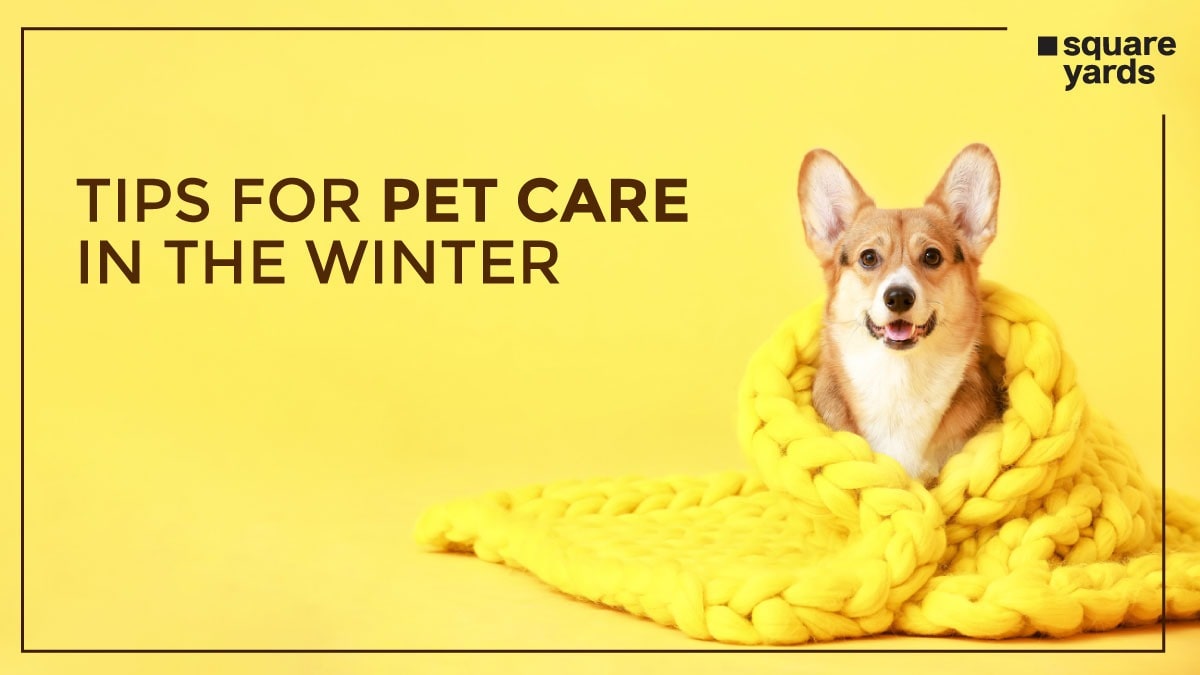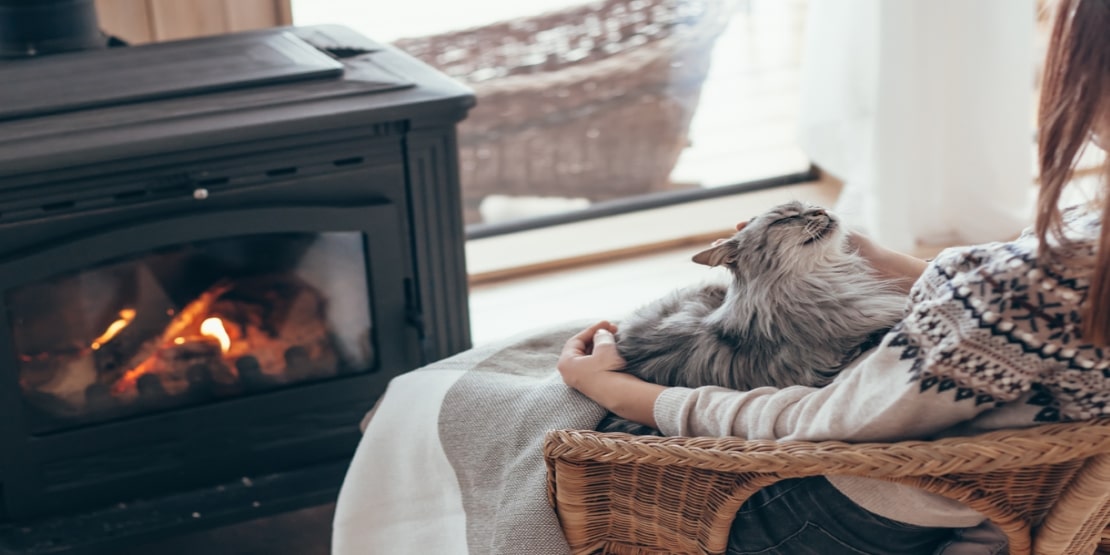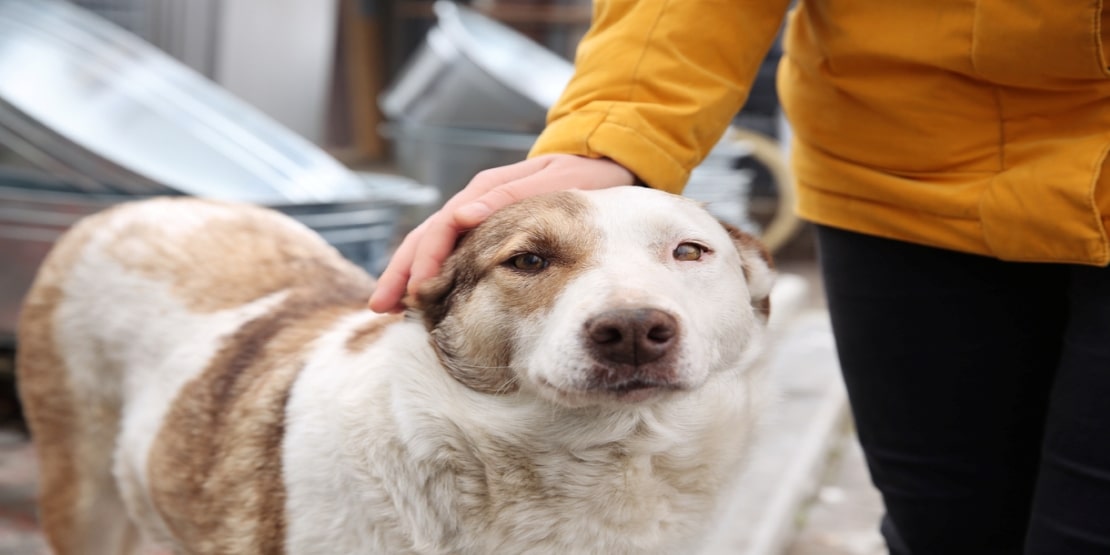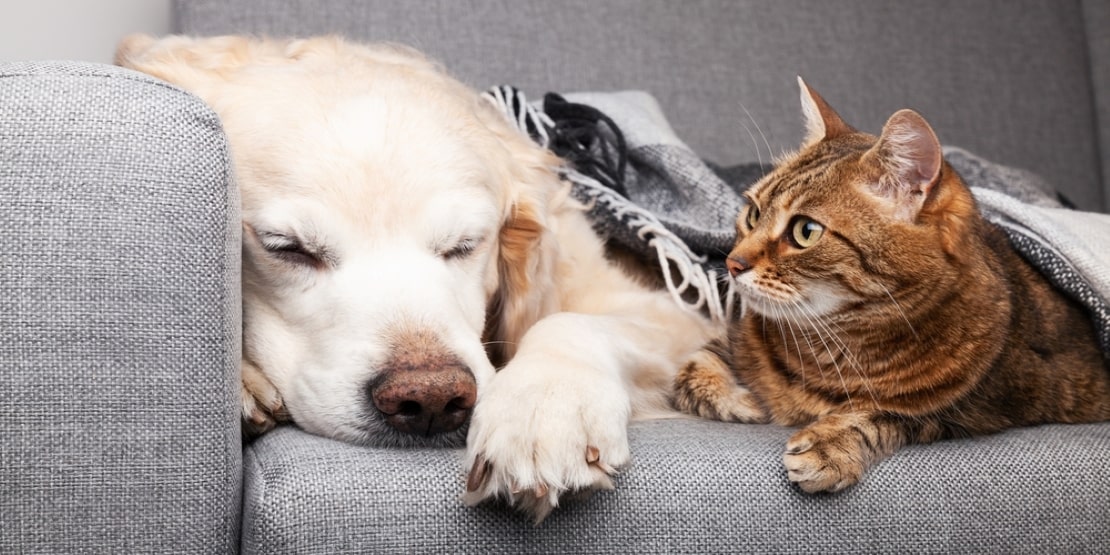While unexpected illnesses and injuries could happen at any time in life, some of them are more prevalent seasonally. Usually, when the temperature drops and snow falls in Canada, it starts to coat the ground outside. Therefore, it becomes important to protect your pets by catering their daily routine with safety to keep them comfortable and happy until the next spring buds start to bloom. Pet care in winter requires some thoughtful preparation.
Read on for the basics of pet care to protect them throughout the winter!
Essential Tips for Pet Care in Winter
Follow these suggestions to protect your furry pet from bone chilling winters in Canada.
-
Little Paws Must be Protected
The freezing snow and chilling breeze could be a pain in the paw. Always wash and dry your pet’s paws after they’ve been outside, especially if they’ve come into contact with any chemical de-icer or salt.As per the doctors’ report, the tail, ears, and legs of the pet are sensitive to frostbite. Look out for snow which could cause cracks in the soft paws and if you notice any bleeding, take your pet to the vet. If you are unable to call a veterinarian, then you can apply petroleum jelly as it is a safe option for the paws, or you can also look into pet boots.
-
Winter Nutrition
Pets burn more calories during cold winters in order to stay warm. So if your pet does a lot of outdoor exercise, then you must increase their diet a bit. Give them all the minerals, vitamins and calories that they require to thrive. However, if your pet is less active, don’t unknowingly increase their diet.If you are unsure about the diet of your pet depending upon the season and their activities, then you must consult an expert vet.
-
This Winter, Wrap Up
During the winter, do not cut your pet’s fur; instead, leave it longer to help them stay warm.If you have a cat, a puppy or a short-haired pet, consider buying them a sweater or coat to cover their back and underside. Also, considering a fleece is a good option.
-
Block Off-heat Sources
Pets during winter might seek a heat source as a place to cuddle or for a quick nap. According to veterinarians, heat outsource spots may pose a burn risk to pets because they are unaware of how hot they can become.Also, keep the quirky pets away from the radiator and wood burning stove, especially during the winter months.
-
Increase Their Bath Intervals
Moisturiser is the best friend of any skin during winter, but it’s the same with pets. The skin of pets tends to dry out. Although dry skin is not a major issue, it could still be a source of discomfort for pets at some point in time. It’s not like you have to cut out baths for the whole winter season from December to March, but you must cut back on the frequency of baths. Ask your vet for a moisturising shampoo to keep your pet’s skin soft.
Outdoor Pet Care in Winter
- Always groom your pet regularly during the winter to remove the dirt and fluff up the coat.
- Make sure you clean the feet of your pet by removing mud, ice, salt, snow, and fur. The rock salt melts the ice on the sidewalks, which could cause irritation to your pet’s footpads. Rinse and dry the feet of your pet after a walk, and consider buying them boots for precaution. This will lead to a good pet care procedure.
- Most of the animals are sensitive to frostbite. As a result, keep checking their skin; if it’s red, white, greyish, or on the same scale, it’s an indication of frostbite, and you should seek veterinary care.
- Avoid leaving pets in vehicles for long periods of time, especially during winters in Canada, as vehicles could turn into refrigerators.
- If you leave your pet outdoors, then you must provide them with an appropriate shelter that is located off the ground and not in direct contact with the wind. It’s advisable to bring your pets inside if it’s severely cold outside.
- Avoid keeping your pets outside when the snow falls, as they can easily slip on the snowy surface and catch a cold.
- Make sure you check your vehicle in and out properly before you start it, as pets seek warmth in vehicle engines.
- Antifreeze is deadly to pets like dogs and cats. Thus, make sure it is stored properly.
- Pet owners should monitor their pet’s walk when the temperature dips down to the freezing point. Because even if your pet has a thick coat, their nose, tails, toes, and ears are exposed and could get frostbite. So, as a rule of thumb, you must not exceed their walks by more than 15 minutes in cold weather.
- Always be careful while playing or walking with your pets near frozen bodies of water like lakes, ponds, or rivers, as pets are hyperactive and might jump in and could get seriously injured.
Indoor Pet Care in Winter
- Keeping your pets indoors is important, but it’s not enough. You need to ensure that they are away from the indoor heat sources, such as electric heaters or fireplaces.
- Indoor plants refresh the ambience, but they can be harmful to pets sometimes. Therefore, make sure to keep your pets away from poisonous plants such as poinsettias, holly, and mistletoe.
- Make sure your pet has a dry, draft-free and warm place to sleep.
- Make sure your pet has access to fresh water all the time when indoors and remove ice from outdoor water bowls when required.
Wrapping it up
Pets are dear and you adore winter as well, so Canada could get tricky at this time when you have to protect your sweet little paws from the harsh winters out there. But don’t worry, following the above-detailed pet care in winter tips will definitely help you enjoy winter with your pets while keeping them warm.It is always advisable to approach vets as each pet has different needs and habits, thus following the same rule book for all might not work sometimes.
You May Also Read
| Renting with Pets | Prepare House for Winters in Canada |
| Best Ways to Keep Warm in Canada | Winter Wear in Canada |
| Guide to Traveling Canada in Winter | Your First Winter in Canada |
Frequently Asked Questions
How do I take care of my pet in the winter?
Keep your pet indoors, wrap them in wool, keep the room heater away from the pet, and change their drinking water often.
How do I manage my dog in the winter?
In order to keep your dog comfortable, you can provide them with a warm and cosy place to sleep along with an adequate shelter. Also, you must check their paws from time to time to protect them against hypothermia.
Should I give my pet warm water in winter?
Avoid giving them food or water that is at room temperature or cold. Instead, warm up their food and water a bit as it increases the proportions of their meal and keeps them healthy.
What warm drinks can dogs have?
An alternative warm drink such as unsweetened coconut milk, goat milk, or just warm water is good for dogs.














